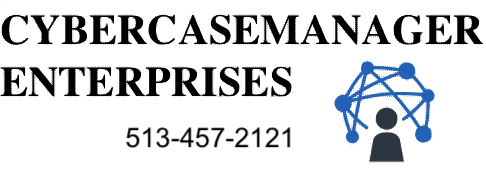2019 Q4 recipients of AWS Machine Learning Research Awards
The AWS Machine Learning Research Awards (MLRA) aims to advance machine learning (ML) by funding innovative research and open-source projects, training students, and providing researchers with access to the latest technology. Since 2017, MLRA has supported over 180 research projects from 73 schools and research institutes in 13 countries, with topics such as ML algorithms, computer vision, natural language processing, medical research, neuroscience, social science, physics, and robotics.
On February 18, 2020, we announced the winners of MLRA’s 2019 Q2/Q3 call-for-proposal cycles. We’re now pleased to announce 28 new recipients of MLRA’s 2019 Q4 call-for-proposal cycle. The MLRA recipients represent 26 universities in six countries. The funded projects aim to develop open-source tools and research that benefit the ML community at large, or create impactful research using AWS ML solutions, such as Amazon SageMaker, AWS AI Services, and Apache MXNet on AWS. The following are the 2019 Q4 award recipients:
| Recipient | University | Research Title |
| Anasse Bari | New York University | Predicting the 2020 Elections Using Big Data, Analyzing What the World Wants Using Twitter and Teaching Next Generation of Thinkers How to Apply AI for Social Good |
| Andrew Gordon Wilson | New York University | Scalable Numerical Methods and Probabilistic Deep Learning with Applications to AutoML |
| Bo Li | University of Illinois at Urbana-Champaign | Trustworthy Machine Learning as Services via Robust AutoML and Knowledge Enhanced Logic Inference |
| Dawn Song | University of California, Berkeley | Protecting the Public Against AI-Generated Fakes |
| Dimosthenis Karatzas | Universitat Autónoma de Barcelona | Document Visual Question Answer (DocVQA) for Large-Scale Document Collections |
| Dit-Yan Yeung | Hong Kong University of Science and Technology | Temporally Misaligned Spatiotemporal Sequence Modeling |
| Lantao Liu | Indiana University Bloomington | Environment-Adaptive Sensing and Modeling using Autonomous Robots |
| Leonidas Guibas | Stanford University | Learning Canonical Spaces for Object-Centric 3D Perception |
| Maryam Rahnemoonfar | University of Maryland, Baltimore | Combining Model-Based and Data Driven Approaches to Study Climate Change via Amazon SageMaker |
| Mi Zhang | Michigan State University | DA-NAS: An AutoML Framework for Joint Data Augmentation and Neural Architecture Search |
| Michael P. Kelly | Washington University | Web-Based Machine Learning for Surgeon Benchmarking in Pediatric Spine Surgery |
| Ming Zhao | Arizona State University | Enabling Deep Learning across Edge Devices and Cloud Resources |
| Nianwen Xue | Brandeis University | AMR2KB: Construct a High-Quality Knowledge by Parsing Meaning Representations |
| Nicholas Chia | Mayo Clinic | Massively-Scaled Inverse Reinforcement Learning Approach for Reconstructing the Mutational History of Colorectal Cancer |
| Oswald Lanz | Fondazione Bruno Kessler | Structured Representation Learning for Video Recognition and Question Answering |
| Pierre Gentine | Columbia University | Learning Fires |
| Pratik Chaudhari | University of Pennsylvania | Offline and Off-Policy Reinforcement Learning |
| Pulkit Agrawal | Massachusetts Institute of Technology | Curiosity Baselines for the Reinforcement Learning Community |
| Quanquan Gu | University of California, Los Angeles | Towards Provably Efficient Deep Reinforcement Learning |
| Shayok Chakraborty | Florida State University | Active Learning with Imperfect Oracles |
| Soheil Feizi | University of Maryland, College Park | Explainable Deep Learning: Accuracy, Robustness and Fairness |
| Spyros Makradakis | University of Nicosia | Clustered Ensemble of Specialist Amazon GluonTS Models for Time Series Forecasting |
| Xin Jin | Johns Hopkins University | Making Sense of Network Performance for Distributed Machine Learning |
| Xuan (Sharon) Di | Columbia University | Multi-Autonomous Vehicle Driving Policy Learning for Efficient and Safe Traffic |
| Yi Yang | University of Technology Sydney | Efficient Video Analysis with Limited Supervision |
| Yun Raymond Fu | Northeastern University | Generative Feature Transformation for Multi-Viewed Domain Adaptation |
| Zhangyang (Atlas) Wang | Texas A&M University | Mobile-Captured Wound Image Analysis and Dynamic Modeling for Post-Discharge Monitoring of Surgical Site Infection |
| Zhi-Li Zhang | University of Minnesota | Universal Graph Embedding Neural Networks for Learning Graph-Structured Data |
Congratulations to all MLRA recipients! We look forward to supporting your research.
For more information about MLRA, see AWS Machine Learning Research Awards or send an email to aws-ml-research-awards@amazon.com.
About the Author
 Seo Yeon Shin is a program manager for the AWS AI Academic Programs.
Seo Yeon Shin is a program manager for the AWS AI Academic Programs.
Tags: Archive

Leave a Reply